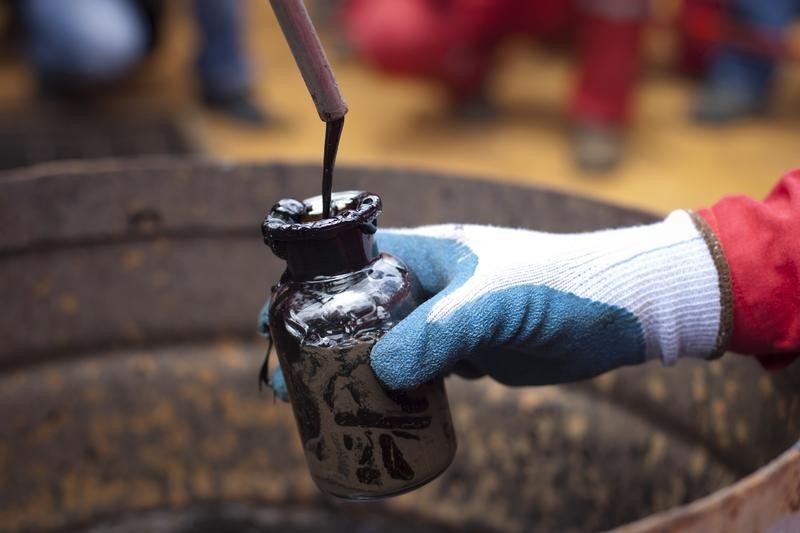Investing.com - Oil prices fell towards $30 a barrel on Tuesday, as ongoing worries over the health of China’s economy fueled concerns that a global supply glut may stick around for longer than anticipated.
On the ICE Futures Exchange in London, Brent oil for March delivery dropped 71 cents, or 2.23%, to trade at $31.17 a barrel as of 08:50 GMT, or 3:50AM ET, after sinking to a session low of $30.77, a level not seen since April 2004.
On Monday, London-traded Brent futures tumbled $2.05, or 6.04%. Prices are down almost 17% since the start of the year as a meltdown on China’s stock market and a rapid depreciation of the yuan rattled investor sentiment.
Market players are concerned that the plunge in the stock market could spread to other parts of the Chinese economy, triggering fears that the Asian nation's oil demand will decline.
China is the world's second largest oil consumer after the U.S. and has been the engine of strengthening demand.
Elsewhere, crude oil for delivery in February on the New York Mercantile Exchange slumped 78 cents, or 2.47%, to trade at $30.63 a barrel. It earlier fell to $30.42, the lowest level since December 2003.
New York-traded oil futures plunged $1.75, or 5.28%, on Monday. The U.S. benchmark has lost more than 17% since 2016 began.
Market players looked ahead to fresh weekly information on U.S. stockpiles of crude and refined products to gauge the strength of demand in the world’s largest oil consumer.
The American Petroleum Institute will release its inventories report later Tuesday, while Wednesday’s government report could show crude stockpiles rose by 2.5 million barrels in the week ended January 8.
Meanwhile, Brent's premium to the West Texas Intermediate crude contract stood at 54 cents, compared to a gap of 47 cents by close of trade on Monday.
Global crude production is outpacing demand following a boom in U.S. shale oil and after a decision by the Organization of the Petroleum Exporting Countries last year not to cut production in order to defend market share.
Most market analysts expect a global glut to worsen this year due to soaring production in North America, Saudi Arabia and Russia.
Oversupply issue will be exacerbated further once Iran returns to the global oil market early next year after western-imposed sanctions are lifted. Analysts say the country could quickly ramp up production by around 500,000 barrels, adding to the glut of oil that has sent prices tumbling.
